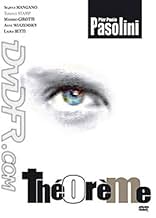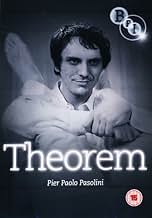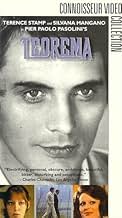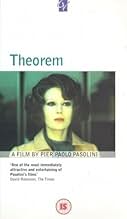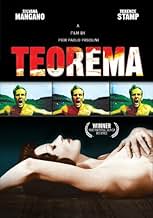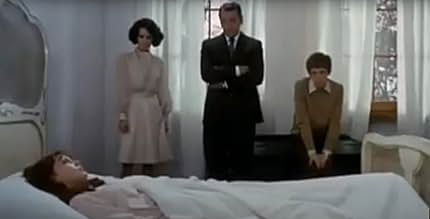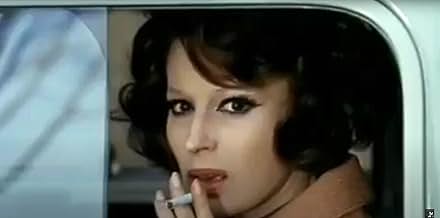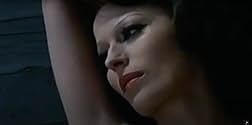A mysterious young man seduces each member of a bourgeois family. When he suddenly leaves, how will their lives change?A mysterious young man seduces each member of a bourgeois family. When he suddenly leaves, how will their lives change?A mysterious young man seduces each member of a bourgeois family. When he suddenly leaves, how will their lives change?
- Director
- Writer
- Stars
- Awards
- 1 win & 5 nominations total
- Second Boy
- (as Ivan Scratuglia)
- Interviewer
- (uncredited)
- Old Peasant
- (uncredited)
- Director
- Writer
- All cast & crew
- Production, box office & more at IMDbPro
Featured reviews
Teorema and Apartment Zero
surprisingly trite
An Insightful, Important (but flawed) Film
a beautiful poem
Strange Metaphoric Movie
Did you know
- TriviaAt the 1968 Venice Film Festival, the film was given an award by the International Catholic Film Office. The award was withdrawn after critical remarks by Pope Paul VI. After the festival the film was confiscated by Italian police and Pier Paolo Pasolini charged with obscenity, but acquitted.
- GoofsWhen Lucia (the mother) leaves the house to go cruising for men, she is wearing a white coat. The first camera shots of her in the car also show the coat. However when she spots a young man and stops the car, the white coat is gone and now she's wearing a dark orange coat.
- Quotes
Lucia, the mother: I realize now that I've never had any real interest in anything. I don't mean anything grand. Just the simple, everyday interest my husband takes in his work, or my son in his studies, or Odetta in family life. I've had nothing like that. I don't know how I lived with such emptiness, yet I did. If there was anything at all, some instinctive love of life, it has withering away - like a garden where no one ever goes. Actually, that void was filled with false and wretched values, an appalling jumble of misguided ideas. Now I see: You filled my life with a real and total interest. So by leaving, you're not destroying anything that was there before, except my chaste bourgeois reputation. Who cares about that?
- ConnectionsEdited into Histoire(s) du cinéma: Seul le cinéma (1994)
- SoundtracksRequiem
KV 626
Written by Wolfgang Amadeus Mozart
Performed by Russian Academy Choir and Moscow Philharmonic Orchestra
Courtesy of MK Records
- How long is Teorema?Powered by Alexa
Details
- Runtime
- 1h 38m(98 min)
- Color
- Aspect ratio
- 1.85 : 1



